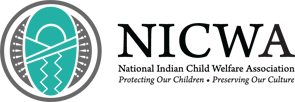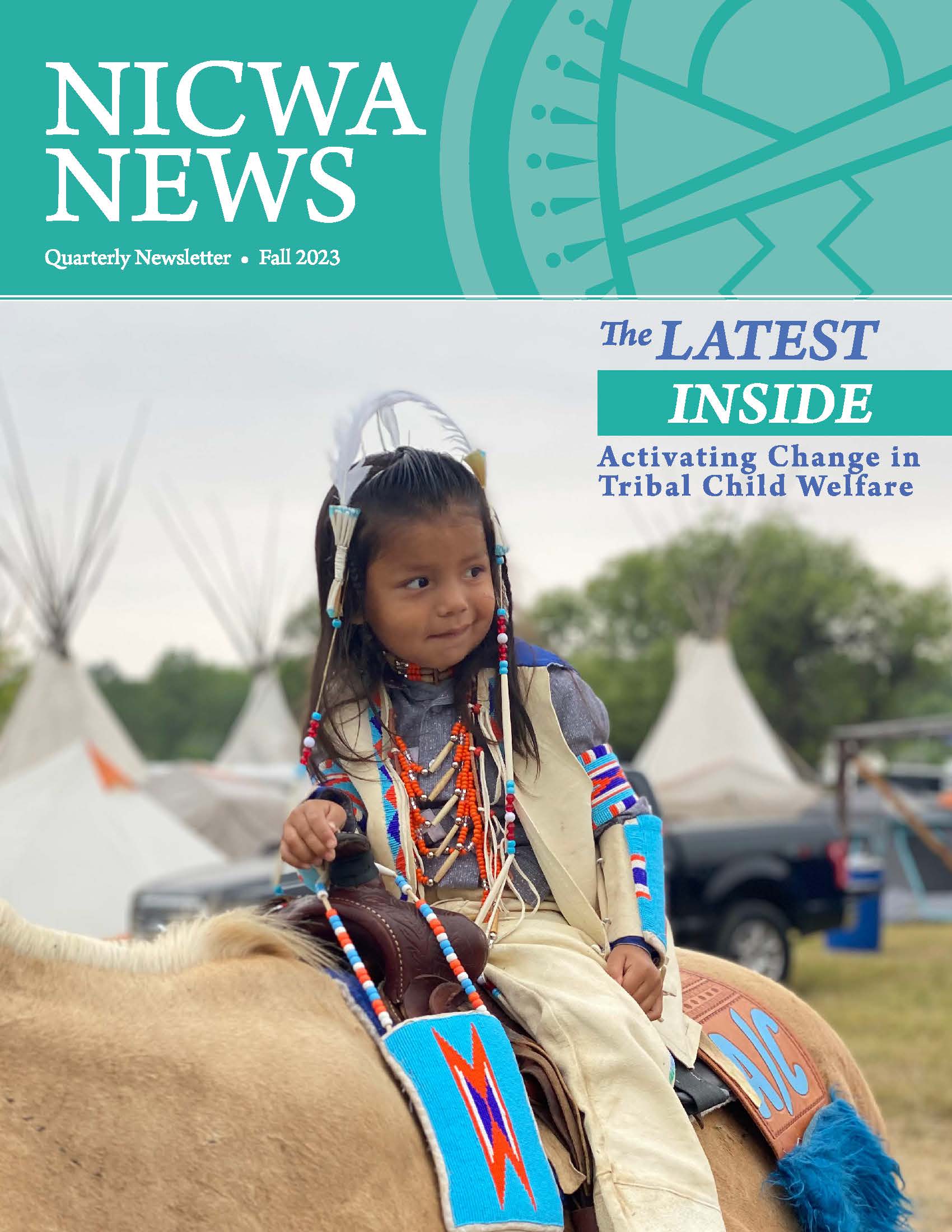2023 Fall NICWA News
“Activating Change in Tribal Child Welfare”
NICWA News is the quarterly newsletter for members and donors of the National Indian Child Welfare Association. Donate or become a member today to subscribe.
A Message from NICWA’s Executive Director
Dear NICWA Members, Sponsors, Donors, and Friends,
This fall issue of NICWA News embraces the theme “Activating Change in Tribal Child Welfare.” As we shared in our summer issue, in the wake of the Supreme Court decision in Haaland v. Brackeen affirming the constitutionality of ICWA, NICWA and our Protect ICWA Campaign partners—the Native American Rights Fund, National Congress of American Indians, and Association on American Indian Affairs—have redoubled our advocacy to strengthen ICWA implementation and compliance. We’re building on the strength of the coalition and deep bench of support for ICWA that we’ve grown over the past several years. We’re going to sustain the momentum of our relentless advocacy, emboldened by the Brackeen win and flurry of state ICWA laws passed. Recent federal actions include consultation with tribes about federal government support to help state courts and child welfare agencies meet their obligations under ICWA. The U.S. Department of Health and Human Services (HHS) also released a federal rule that will allow tribes and states to have different licensing standards for kinship and non-kinship foster homes, making it easier to implement ICWA placement preferences prioritizing placement with extended family if out-of-home placement must occur. We’re also eagerly anticipating HHS action on the federal Adoption and Foster Care Analysis Reporting System data collection requirements for states this fall.
This issue of NICWA News comes on the heels of Child Welfare Worker Appreciation Week. In subsequent pages, you’ll read about one way we honored child welfare workers who participated in our fall training institutes in Oklahoma City. I mention this specifically because child welfare workers are the heart of our system. It’s people that respond to concerns about the safety of children and provide services to strengthen our families. It’s human beings—our workers, you!—who create the experience that families and children have with our systems. Activating change in our systems is dependent on the child welfare workers who live out our community vision and values for how to keep children safe and serve and support families to raise healthy and spiritually strong children.
In the coming months, NICWA will work with tribal child welfare programs to identify the promising practices that tribes throughout the country are implementing. As we work to strengthen our programs, implement the services our communities need, and support our child welfare workers, we are not starting from ground zero. There are many good things already happening in tribal communities, formal services and informal community practices, that reduce the trauma of child welfare system involvement and support families in caring for their children. Our goal is to partner with you to lift up and share the things that we know work. In this way we can facilitate peer learning and support uptake and adaptation of a wide variety of practices that address family and children’s needs throughout their involvement with the child welfare system and most importantly, in preventing families’ involvement with the system when possible.
Native communities have deep ancestral wisdom about how to raise thriving children, and we can structure our relationships and services in ways that build on the foundation of that wisdom. We look forward to working with you to build our collective tribal child welfare capacity by sharing what communities are already doing and how they enacted the system change that families and children need to have better outcomes and thrive.
With gratitude for your good work for Native children,
Sarah L. Kastelic, PhD (Alutiiq)

